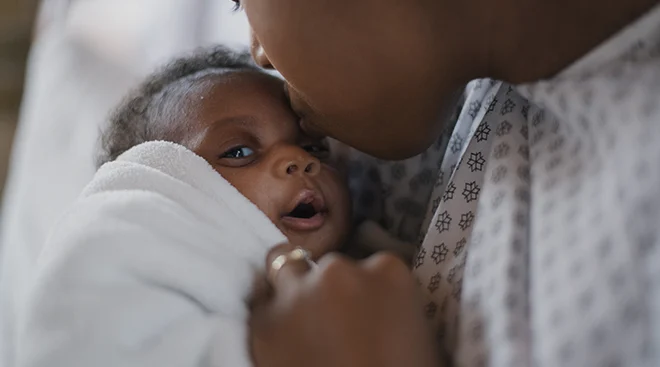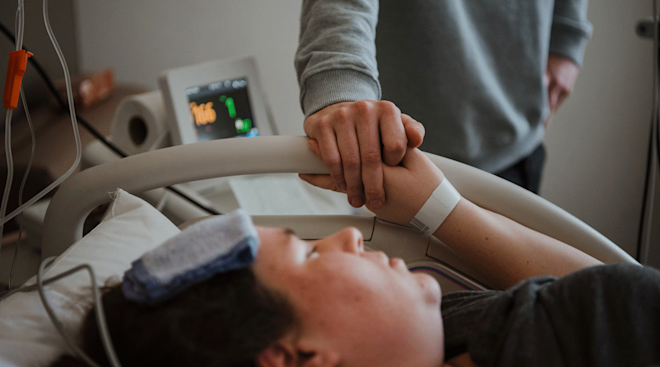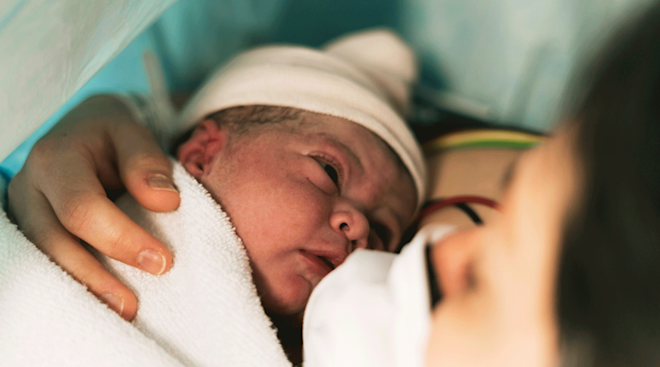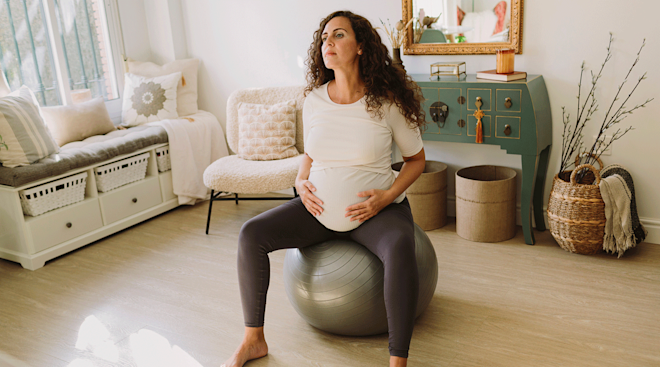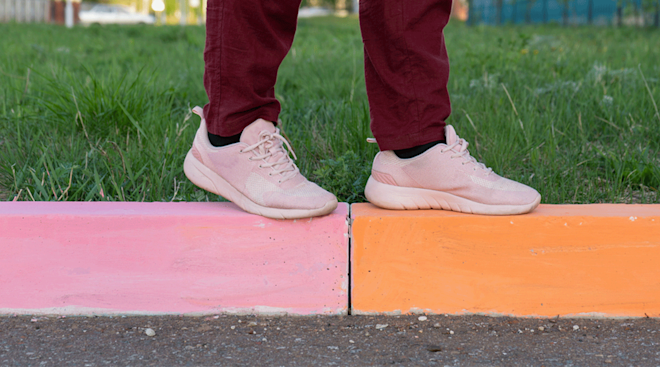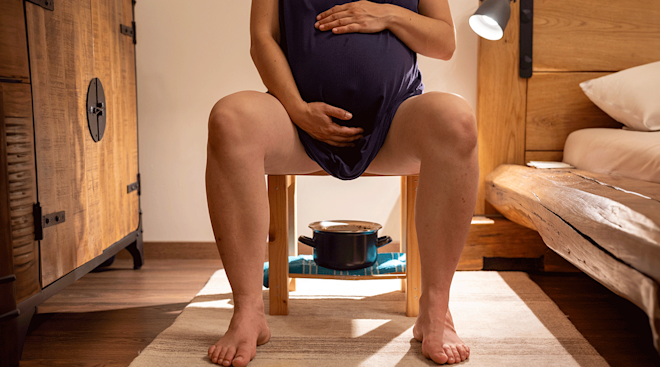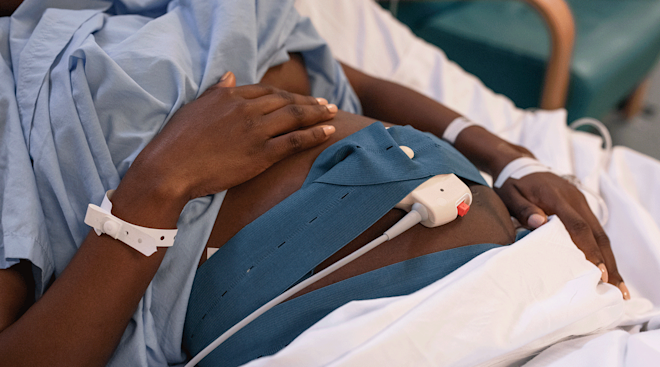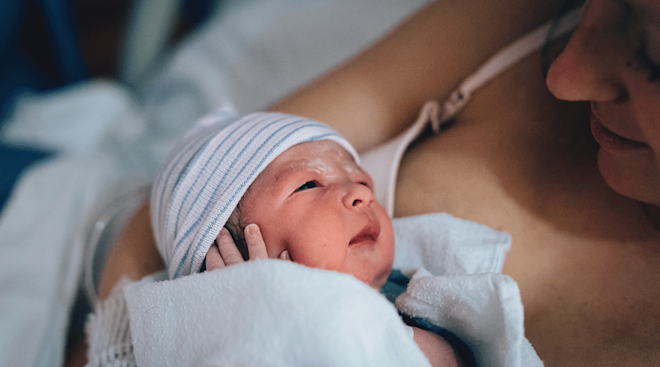Learning and Growing From My Experience With Birth Trauma
Finding out I was pregnant at 20 years old was terrifying. I was worried it was a huge disappointment to my family, as they had rallied behind me and supported my move to college. What’s more, I was unsure how I was going to care for and provide for a little one. Riddled with shame and terrified that I had ruined my life, I hid my pregnancy from most of my family for six months.
Pregnancy was difficult for me, to say the least. The mental stress was real. The physical toll was even harder. I was sick every day, and the weight gain and growing belly weren’t easy to manage, let alone hide.
But as the weeks grew into months and I hit the third trimester, I knew it was time to finally break the news to my whole family. They were disappointed, but they tried to be supportive. My mother eventually came around and started attending doctor’s appointments with me. She held my hand as we learned together that the baby would be a boy, and celebrated with me as we picked out names. Slowly, the entire family began to get excited about baby’s impending arrival.
My grandmother, our family matriarch and the woman who helped raise me and my siblings after our parents divorced, was also an immense source of strength during this time. As a registered nurse, she ensured that I had the proper care for the remainder of my pregnancy. I can’t even begin to tell you how much of a relief this all was. Although still scared, I finally felt free.
Unfortunately, this moment was short-lived. With a few weeks left to go in my pregnancy, I woke up one morning with what seemed like normal discharge. I showered and hoped it would go away. But it didn’t. It constantly leaked, and I had to wear maxi pads when leaving the house. I called the doctor and went in for a visit right away. They assured me that nothing was wrong—that this was normal. Days later, I felt ill. I went back to the doctor, and they were again dismissive.
But at my regularly scheduled 36-week visit, my doctor suddenly became extremely concerned. My blood pressure had skyrocketed to dangerous levels, and the baby’s heart rate was dropping. Diagnosed with preeclampsia, I was now in an emergency situation and rushed to the hospital.
Once there, they induced labor. I wasn’t allowed to move; instead, I had to lie on my back through intense labor pains. The doctor and most of the nursing staff weren’t listening to me. I begged for pain medication and was met with shrugs of silence. Communication was lacking, and the few times the nurses or doctors did speak to me, they were curt, unkind and unsupportive.
Four or five hours into the ordeal, the doctor came into the room to break my water. But after a first attempt, he seemed confused. Turns out, my sacs were already ruptured. He started to question nurses and other staff about when and how my water had broken, but no one had an answer. Outside my room, I could hear them discussing what had gone wrong.
At that moment, it hit me. My amniotic fluid had been leaking for weeks. My baby was at risk for a full month.
Infuriated and in excruciating pain, I tried to tell anyone who would listen. But no one acknowledged my revelation; they continued to chatter about what to do next as if I wasn’t a part of the unfolding scene.
Just then the fetal monitor started to sound—we were suddenly in an emergency situation. I needed to give birth right away.
The mind games were real. I felt like I was being punished for something. I worried that this was my comeuppance for getting pregnant young and having a baby out of wedlock. Terrified for my life, I prayed and bargained with God and the universe that if my son and I made it out of this healthy and alive, I would never have another baby again.
Adding fuel to the panicked fire, the hospital staff never took a moment to directly address me about what was happening. And despite my pleas for pain medication, I didn’t get what I needed. I pushed until baby crowned and I felt like I was going to pass out. Still, the doctor warned that if I didn’t push, he was going to be forced to pull. I pushed with all my might, and he pulled to deliver the shoulders and, ultimately, the rest of baby’s body. This created a tear that needed an unspeakable amount of stitches.
They placed my baby on my chest, and I instantly fell in love. He was absolutely perfect. I was adjusting to this dynamic shift when the nurses rushed in and revealed that he was jaundiced and had an infection that required him to stay under 24-hour care. I didn’t even get to enjoy the moment.
Thankfully, it all turned out okay in the end. Nevertheless, the experience was terrifying and traumatizing. As a young Black woman, I felt alone and afraid. I was unsure of how to handle the situation or speak up for myself. And, in that fraught moment, I honestly thought it was just normal to be ignored and disregarded during childbirth—that is, until I listened to other women share their birth stories. Their treatment sounded so different from mine.
I felt embarrassed about my story for a long time when I was younger. I was ashamed that I allowed myself to be treated in such a way. I still am, if I’m being honest.
I can’t quite say what caused them to treat me like a lesser person. All I can surmise is that being young, Black and naive made them think I didn’t have the experience to know my body or the right to be respected.
I would later marry a wonderful man who helped me raise my son. Still, more than 20 years later, the experience haunts me. My husband and I have often discussed having more children, but the traumatic memories from my past continue to hold me in fear. But sharing this story serves as therapy of sorts. I hope that other young women who read this will learn that it’s okay to advocate for yourself in any and all situations.
Doctors and medical professionals aren’t perfect. They’re human, they make mistakes and can even hold prejudiced feelings. Your body is yours; it’s always okay to speak up when you feel something is not right. Your life—and perhaps that of your baby—may depend on it.
About the author:
Nina Bradley is a wife, mother and e-commerce editor based in New Jersey. As a lover of all things decor, design and fashion, she can often be found online searching for the best deals on clothing, event decor and homeware. She loves traveling, going to the beach, happy-hour hopping and spending time with family and friends. Follow Bradley on Instagram @thingsninaloves.
Plus, more from The Bump:
Navigate forward to interact with the calendar and select a date. Press the question mark key to get the keyboard shortcuts for changing dates.
































